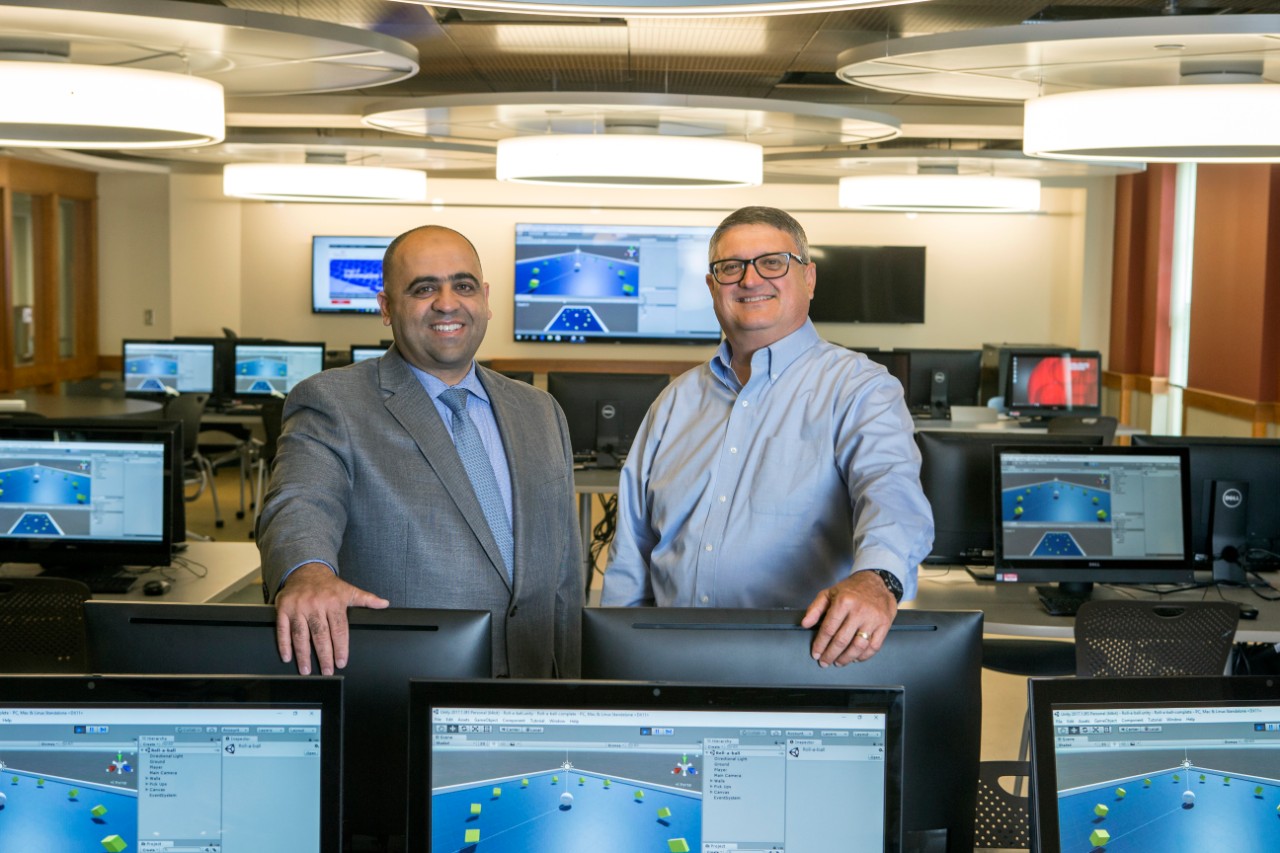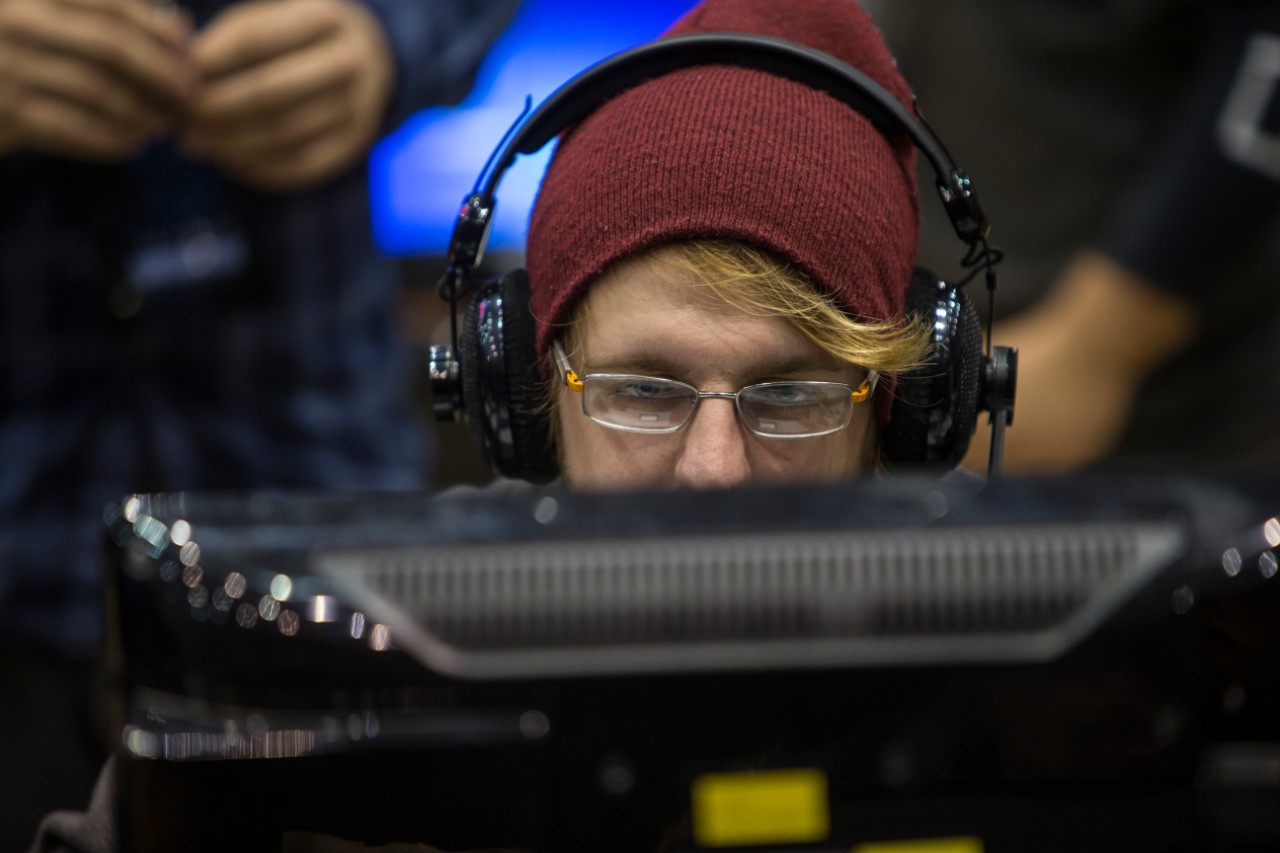By Matt Koesters
513-556-5279
Photos by Andrew Higley/UC Creative Services
Aug. 9, 2017
Among the generation of students entering college, it’s difficult to find anyone who hasn’t played video games. University of Cincinnati information technology educator Jim Scott estimates that at a recent IT summer camp for area teens, more than 80 percent of camp attendees said they play video games, and several of the students were already trying to develop their own games.
Beginning this fall semester, UC’s School of Information Technology will offer a new area of concentration for undergraduate IT majors: Game Development and Simulation. The new concentration will give students the opportunity to learn about video game and virtual reality simulation development using the Unreal and Unity game development engines, arguably the two most popular publicly available.
“There are many students who are interested in this subject” says Hazem Said, head of the School of Information Technology. “Parents become intrigued when they learn we are offering a degree in Game Development — ‘Finally, my son or daughter can turn their passion for playing video games into a professional skill and career.’”

School of Information Technology Head Hazem Said and instructor Jim Scott show off the school's new video game development studio.
The U.S. video game industry generated more than $30 billion in 2016, according to the Entertainment Software Association. The bulk of the country’s gaming companies headquarter on the East and West coasts, but Said and Scott both hope the new IT concentration brings change to the region. “We are hoping this will be one of — if not the premier — Midwest game development program,” Said says. “This program will allow the Midwest to be a player in the game industry.”
The IT Game Development and Simulation concentration offers students the opportunity to gain the skills necessary to develop next-generation software. Concentration-specific course offerings include:
Games and Society;
Game Engine Lab I, II;
Multiplayer and Network-Based Games.

Students pursuing this concentration are required to take the same core classes as IT majors on other tracks, providing them with a broad foundation. Additionally, the concentration requires five co-op semesters for graduation, one of the few programs of its kind anywhere with such a requirement. “These skills can translate to opportunities outside of the game industry. Students are still getting a degree in information technology,” says Scott.
That’s where the simulation aspect of the concentration could come into play. As VR technology continues to advance, Scott explains, it’s starting to be viewed less as a toy and more as a tool for training new employees in fields such as law enforcement and health care. VR simulations can accurately and inexpensively simulate real-world situations, elimnating the life-altering consequences of poor choices and making it a teaching tool second only to actual experience.
“The time is right for gaming to be used to solve the world’s problems,” says Scott.
The School of Information Technology offers numerous options at the undergraduate and graduate levels for students interested in pursuing a career in the IT field. Click here to learn more about how to become a Bearcat.

